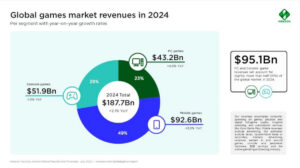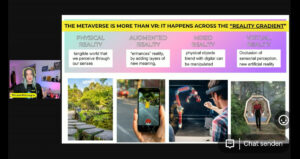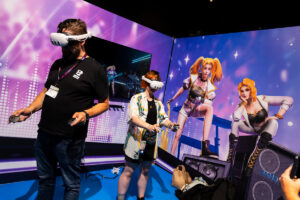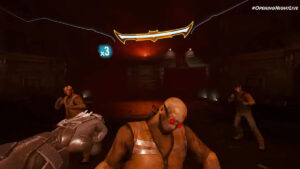In midyear 2024, as Gamescom kicked off the world’s largest gaming event, market analyst Newzoo slightly revised its January forecast for the industry’s growth, adjusting it downward. Console sales remain stagnant, mobile sales have not expanded, and the PC market sees modest growth. The industry is in a phase of consolidation, with 2024 being labeled a “transitional” year focused on “stabilization” – terms frequently heard throughout the event. Despite this, the search for promotional opportunities continues.


After the pandemic disruptions and the cancellation of E3 yet again, the promotional calendar for games now seems dominated by online events: game announcement trailers debut during the Summer Game Fest (Not-E3); demos and gameplay trailers are showcased at Gamescom and its Opening Night Live (ONL); and the year concludes with preview trailers at The Game Awards after a stop in Tokyo for TGS. Although Gamescom outshines the now-defunct American mega-event, it remains firmly rooted in its traditional spot, only in real life (IRL). Still, its appeal now operates on multiple levels.


On the show floor, non-endemic industry players replace absent game companies, marketing their products to the gaming audience. On the internet, creators broadcast live streams from dedicated spots on the fair ground. Locally, the city of Cologne celebrates one week of game carnival. Globally, Gamescom organizes satellite events in Latin America and Asia. Stabilization in visitor numbers onsite; transitional promotion stop for the media streams online. The more things change, the more they stay the same.


This pattern holds true for VR promotion as well. This year’s Gamescom featured a ‘Home of XR,’ a collective showcase booth where a dozen VR developers presented playable product announcements in the business area. The program was first introduced in the VR Gaming Showcase online. However, in the public area, VR was notably scarce. ONL featured an exclusive VR gameplay trailer for Meta Quest 3, which was barely distinguishable from a traditional flat game promotion. The general audience’s familiarity with VR remains a challenge, both on the show floor and online. The stabilization of VR gaming lies in the repetitive use of proven game mechanics and the transitional borrowing of flat game traditions, to the point of risking its own identity.


At the political forum of Gamescom Congress, the focus was on AI regulation and digital pedagogy. The discussion on policy funding for the national industry was an exact replica of last year’s panel, with the same personal talking the same words on the same procedures from regional to national and European levels. This could be interpreted as a sign of “stabilization” or as yet another “transitional” event. In any case, the gap between local industry efforts and global success strategies remains impressively wide. China’s soft power hit Black Myth: Wukong released during the show in Cologne, drawing worldwide attention with its roots in a cultural heritage legend. Meanwhile, the German escape room puzzler Planetenverteidigungskanonenkommandant, based on the humorous complexities of historical over-engineering, premiered ironically in the Future Games Show.
Images:
Frontispiece © Koelnmesse GmbH, Harald Fleissner
Porsche Booth © Koelnmesse GmbH, Oliver Wachenfeld
Home of XR © Koelnmesse GmbH, Harald Fleissner
Gamescom Congress screenshot © Koelnmesse GmbH
PVKK screenshot © Future Games Show / Bippinbits

